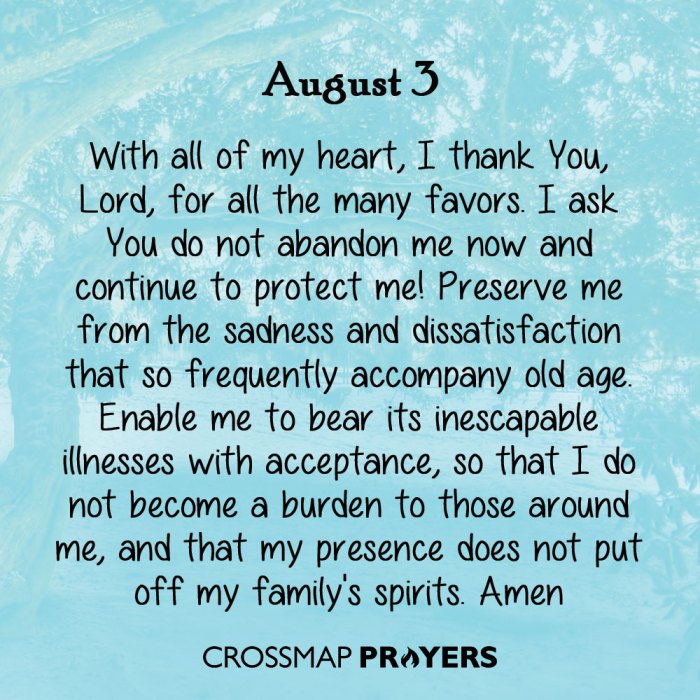No me desampares ni de noche ni de dia – No me desampares ni de noche ni de día, a phrase deeply ingrained in Spanish culture, encapsulates a profound yearning for divine protection and emotional solace. This multifaceted exploration delves into the origins, interpretations, and societal impact of this evocative expression.
From its biblical roots to its enduring presence in literature, music, and art, this phrase has shaped the Spanish language and culture, reflecting the shared human experiences of vulnerability, longing, and the search for meaning.
Introduction: No Me Desampares Ni De Noche Ni De Dia
The phrase “no me desampares ni de noche ni de dia” (Do not forsake me, neither by night nor by day) holds significant cultural, religious, and emotional weight in Spanish-speaking communities. It is a plea for divine protection and a reminder of the vulnerability and need for support that is common to all human beings.
Religious and Spiritual Interpretation

The phrase has its origins in the biblical Psalm 27:10, which reads, “Though my father and mother forsake me, the Lord will receive me.” This verse has been interpreted as a promise of divine protection, even in the darkest of times.
The phrase “no me desampares ni de noche ni de dia” has become a common prayer and devotional practice, expressing the believer’s trust in God’s constant presence and care.
Emotional and Psychological Significance
The phrase can also be used to express feelings of vulnerability, fear, and longing. It acknowledges the human need for connection and support, especially in times of adversity. The phrase can trigger strong emotions, as it taps into our primal fear of abandonment and our desire for safety and belonging.
Cultural and Societal Impact

The phrase has had a profound impact on Spanish language and culture. It has been used in literature, music, and art to explore themes of love, loss, and longing. The phrase has also been used in political and social movements, as a symbol of hope and resilience in the face of adversity.
Literary and Artistic Expression

- Literature: The phrase appears in works by renowned Spanish authors such as Miguel de Cervantes, Federico García Lorca, and Isabel Allende.
- Music: The phrase has been used in songs by artists such as Joan Manuel Serrat, Julio Iglesias, and Shakira.
- Art: The phrase has been depicted in paintings, sculptures, and other works of art, often as a symbol of faith, hope, or longing.
Cross-Cultural Comparisons

Similar phrases or concepts exist in other languages and cultures, reflecting the shared human experiences of vulnerability and the need for support. For example, in English, the phrase “Do not leave me alone” conveys a similar sentiment.
Essential Questionnaire
What is the significance of no me desampares ni de noche ni de día in Spanish culture?
It is a phrase expressing a deep longing for divine protection and emotional solace, prevalent in literature, music, and art.
How has the phrase been interpreted in different religious traditions?
It has been interpreted as a plea for divine protection, a reminder of God’s constant presence, and a source of comfort in times of distress.
What psychological mechanisms underlie the phrase’s ability to evoke strong emotions?
It taps into universal feelings of vulnerability, fear, and longing, providing a sense of reassurance and emotional connection.